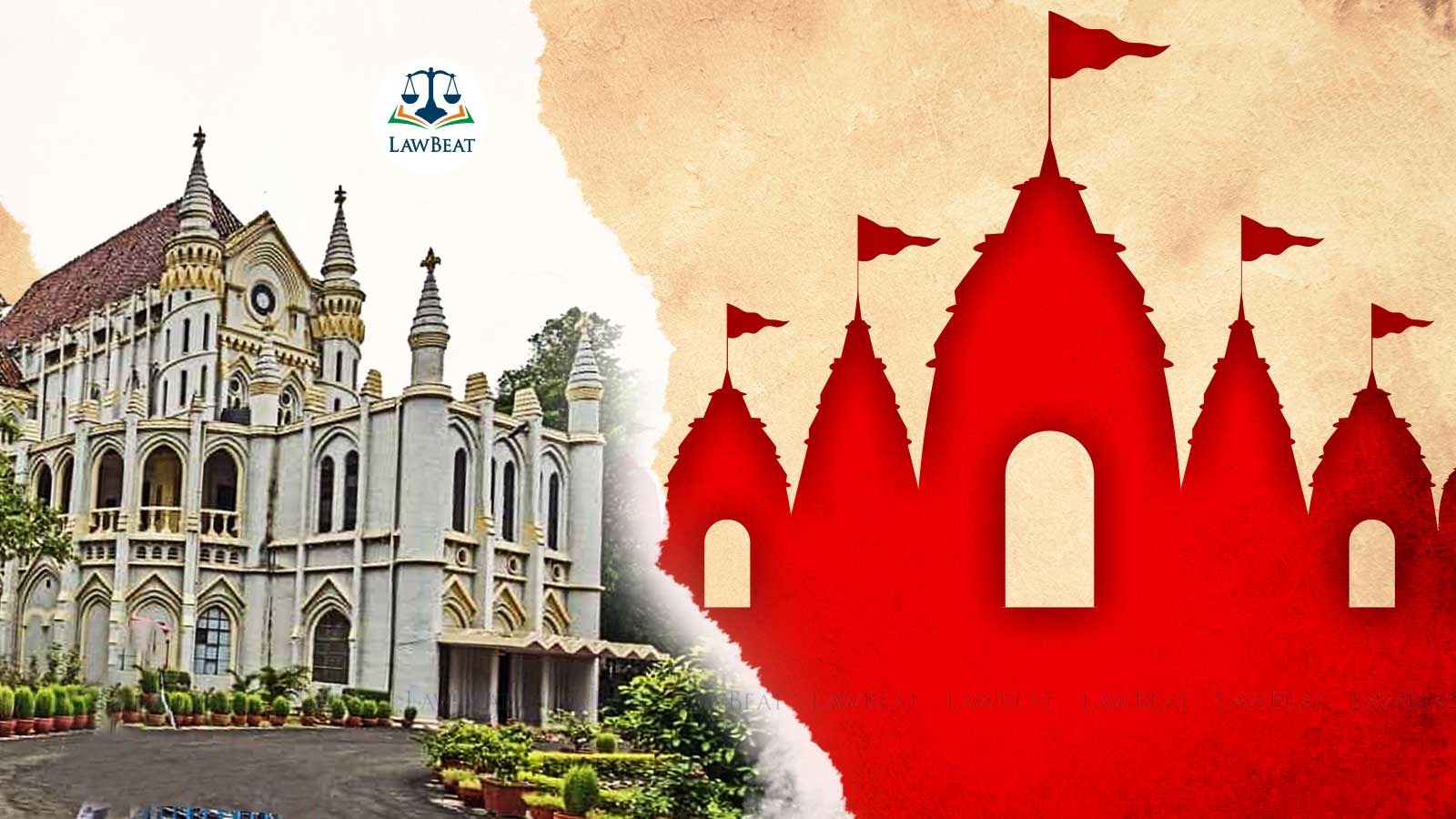Shri Ram Janki Temple Public or Private Trust? : Madhya Pradesh HC Remands Matter Back to Collector For Determination

The court emphasised that if the trust is considered private, then the entire property would belong to the Deity and directed that all the property must be used solely for the Deity's benefit and not for personal purposes
In a significant decision, the Madhya Pradesh High Court at Jabalpur, has remanded a case back to the Collector for fresh consideration, whether Shri Ram Janki Mandir, located in Jabalpur, Madhya Pradesh, is a private Trust or public Trust.
The court, led by Justice GS Ahluwalia, was hearing a petition, filed under Article 226 of the Constitution of India, which sought to challenge the validity of various orders related to the management of the land in question.
The petitioner’s counsel, Advocate Ram Prasad Khare, representing the interests of the private trust associated with the Shri Ram Janki Mandir, argued that the land in question had been rightfully gifted to the trust by their grandfather. It was further argued that “The mother of petitioner was appointed as Sarwarahkar and after her death, petition is being prosecuted by her legal representative.”
Notably, a Sarwarahkar, as observed in the case of ‘Prosonna Kumari Debya v Golab Chand Baboo’ (1875) LR 2 IA 145, is a person entrusted and empowered to do whatever may be required for the service of the idol and for the benefit and preservation of its property. This person is entitled to speak on behalf of the deity on earth and endowed with the authority to deal with all its temporal affairs, including the appointment of a Pujari. Such a person is known by different names in different regions, such as Shebat in Bengal and Northern India, Dharmakarta, Panchayetdar in different parts of Tamil Nadu and Urallen in Malabar region.
The petitioners, in the instant case, contended that the designation of the Collector as the manager in revenue records was erroneous, as such a designation is typically reserved for public trusts, whereas the Shri Ram Janki Mandir is a private trust. Furthermore, they highlighted the lack of consideration regarding the nature of the trust in the decisions made by the Collector, Additional Commissioner, and the Board of Revenue.
Government Advocate Mohan Sausarkar, appearing for the state, was instructed to identify from the orders of the Collector, Jabalpur, Additional Commissioner of Jabalpur Division, Jabalpur, and the Board of Revenue “whether any finding with regard to nature of Trust has been given or not?”
After careful consideration of the arguments presented and a thorough review of the orders issued by the relevant authorities, the court noted a glaring omission, stating that “it is fairly conceded that none of the Authorities have not (sic) taken the pains to decide as to whether Shri Ram Janki Mandir situated in village Budrai, Tahsil Sihora, District Jabalpur is a private Trust or public Trust.”
Consequently, the court set aside the orders issued by the Collector, Additional Commissioner, and the Board of Revenue.
In conclusion, the court intervened to ensure a fair and thorough reconsideration of the dispute, ruling that “The matter is remanded back to Collector, Jabalpur to decide the question afresh after giving a specific finding as to whether Shri Ram Janki Mandir situated in village Budrai, Tahsil Sihora, District Jabalpur is a public Trust or a private Trust.”
The court emphasised that if the trust is deemed to be private, “then in the light of gift deed executed by Shri Bhaiyalal by which entire property was gifted to the Deity, it is directed that Shri Ram Janki Deity would be the owner of entire property and each & every penny of the same shall be utilized for the Deity only and shall not be utilized for personal purposes and Sarwarahkar would be under obligation to submit weekly accounts before the District Judge, Jabalpur in that regard.”
Cause Title: Smt Geeta Bai v State of Madhya Pradesh [WP No. 6790 of 2017]
